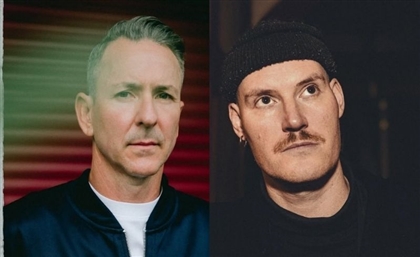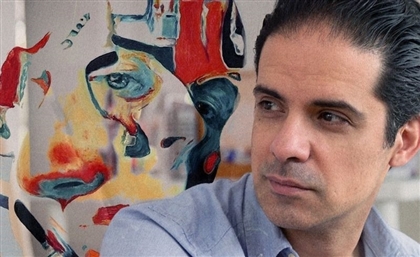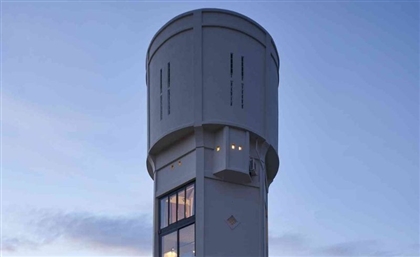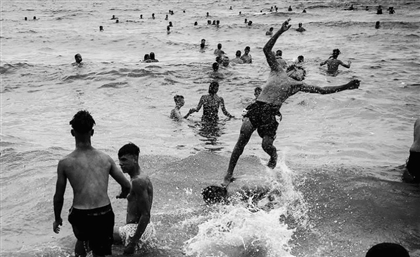‘Cairo Cruisin’ - A Journey Through Cairo’s Cacophony
‘Cairo Cruisin’ is a radio feature by Iranian-German artist Shayan Navab on the Berlin-based platform Refuge Worldwide.
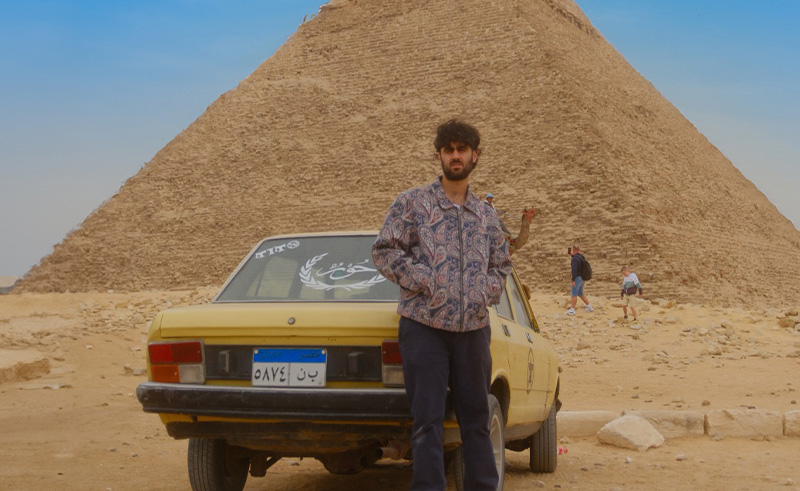
For any newcomer to the city, Cairo is loud. Unapologetically so. People yell, car horns beep, there is music in every little nook and cranny and the call to prayer rings out five times a day. In ‘Cairo Cruisin’, a radio show episode featured on the Berlin-based Refuge Worldwide, Iranian-German artist Shayan Navab offers us a way to engage with, and make sense of, the cacophony of Cairo as he takes us on a journey through the music he discovered during his three-month stay in Egypt.
The show starts off with Adel El Khodary’s ‘Lw Inta Nar’, interspersed with sounds of traffic and overlaid with Shayan’s playful narration as he talks us through one of his first evenings in Cairo. Laughing about the struggles he encounters on a 50-minute walk through the city, he acknowledges how overwhelming it was to be thrust into such non-stop intensity.
He spends the rest of the episode making sense of this noise, unpicking the sounds that uncover the layers of the city. What he finds is a celebration of the myriad of cultures that make up Egypt - From shaabi mahraganat music in tuk tuks and Uber cars, to underground Sudanese rap and classical Nubian tunes.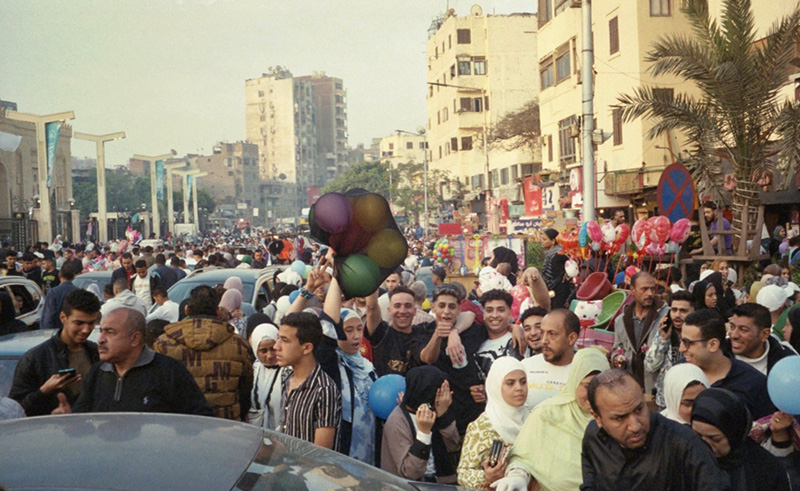 Moving outside of Cairo, the radio show takes us along to the calmer environment of Aswan in southern Egypt, where Shayan and his friend meet a Nubian taxi driver playing some tracks off of a USB stick in his car. Shayan treats us to a couple of tracks from this USB stick, the first of which is a soulful cover of a song by Mahmoud Abdulaziz - a central figure in Sudan’s fight against military rule, known for his blend of urban Sudanese and Western pop music. He also plays a couple of traditional Nubian folk songs by Ahmed Mounib, namely ‘Moshtaeen’ and ‘Al Waed El Maktob’.
Moving outside of Cairo, the radio show takes us along to the calmer environment of Aswan in southern Egypt, where Shayan and his friend meet a Nubian taxi driver playing some tracks off of a USB stick in his car. Shayan treats us to a couple of tracks from this USB stick, the first of which is a soulful cover of a song by Mahmoud Abdulaziz - a central figure in Sudan’s fight against military rule, known for his blend of urban Sudanese and Western pop music. He also plays a couple of traditional Nubian folk songs by Ahmed Mounib, namely ‘Moshtaeen’ and ‘Al Waed El Maktob’.
“These were tunes that haven’t been touched since 1998…I really love this connection that was built into this playlist, and listening through it it also must have had stories of which different songs meant different things to him at different times,” Shayan says during his show. Through his conversation with the Nubian taxi driver, Shayan also emphasises the value of discovering music through engaging with people in an age where music curation is so algorithm driven. “These algorithms are contextualising music and tunes and culture to become what you want them to become”.
Finding music on a USB stick like this, therefore, is a rare instance of authentic music curation, untouched by Spotify-created daylists and the like. Beyond this sentiment, the USB stick also points to the vitality of music as a way of keeping culture alive. After the construction of the Aswan High Dam in 1964, most Nubians were forced to leave their villages. As a result, following generations of Nubians have been brought up in solely Arabic speaking environments. Yet, although the Nubian language is falling out of everyday use, both classical and contemporary Nubian artists remain popular in southern Egypt, distinguished by their unique instruments and rhythms.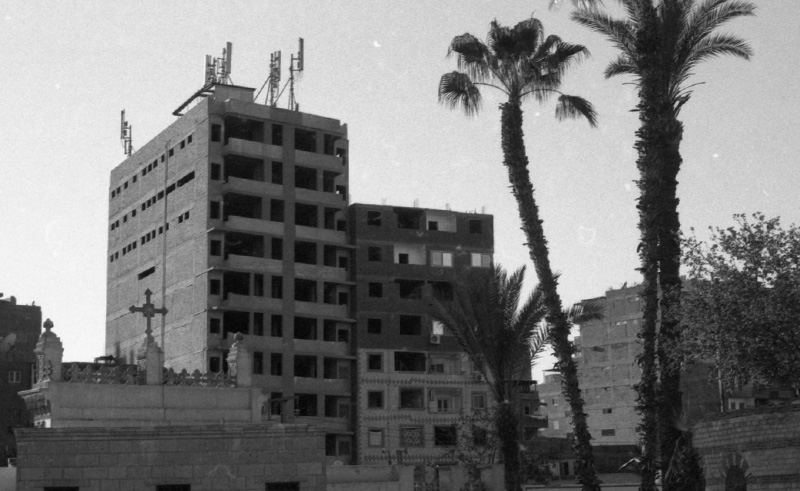 Back in Cairo now, Shayan talks about a performance by a group of underground Sudanese rappers that he attended during his first week in Cairo, and plays two tracks - ‘Harika’ by Ghayaz and Awab, and ‘Kanet Ayam Ya Watany’ by HYPER249. Both tracks are fierce and powerful responses to the disastrous situation in their home country. The rappers are part of the music platform Rap Shar3, a media channel for unrepresented artists in the MENA region. It had been almost a year since war broke out in Sudan at the time of the concert, during which the artists rapped about their move to Cairo, and their dreams of returning to Khartoum.
Back in Cairo now, Shayan talks about a performance by a group of underground Sudanese rappers that he attended during his first week in Cairo, and plays two tracks - ‘Harika’ by Ghayaz and Awab, and ‘Kanet Ayam Ya Watany’ by HYPER249. Both tracks are fierce and powerful responses to the disastrous situation in their home country. The rappers are part of the music platform Rap Shar3, a media channel for unrepresented artists in the MENA region. It had been almost a year since war broke out in Sudan at the time of the concert, during which the artists rapped about their move to Cairo, and their dreams of returning to Khartoum.
The Sudanese community is the largest refugee community in Egypt. As Shayan says, it would be impossible to talk about Cairo, or Egypt, without mentioning all the contributions of Sudanese people. Shayan’s previous radio features also focused on the connections between migration and music; he conducted interviews with Moktar, the Egyptian-born artist who combines club and techno music with traditional Arabic instrumentation, and Saliah, the multi-genre British-Lebanese music producer and DJ.
Shayan later interviewed these rappers alongside his friend Esraa, and he was struck by the strength of support they showed for Gaza despite their own struggles over the past year. He emphasises that the fact that they could still find the time and empathy to talk about these issues in their songs is an important message to those in the west, who are often unable to look outside of their own lives to find a space for solidarity, particularly as someone who came to Egypt from Germany. “Speaking to them I realised there’s always time to move the focus away from your own pain on to other people’s pain, I thought that was really beautiful.”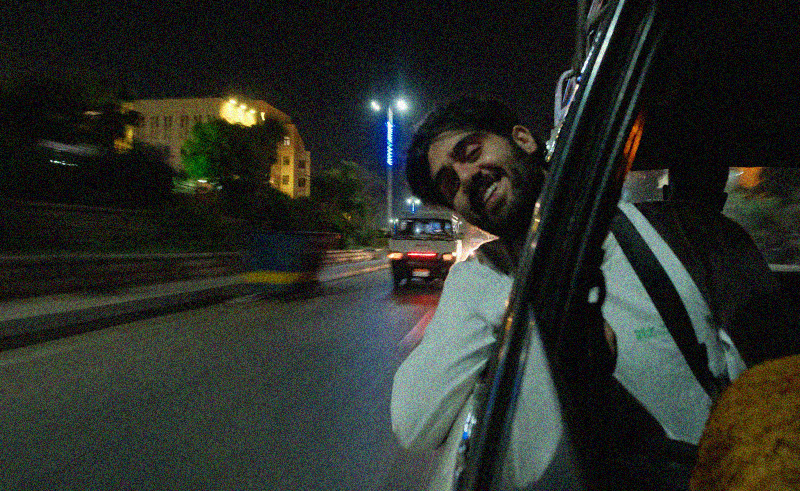 The rest of the episode continues to be a celebration of the diversity of Cairo’s sounds. Shayan plays a record he found while searching for tapes in Cairo, mixed in with a clip from a fisherman he heard singing in Alexandria. He also plays two tracks from DJ ABOsahar, who hails from the Upper Egyptian city of Minya and plays his own brand of electro shaabi music that he calls ‘trobby’ music using only a laptop keyboard.
The rest of the episode continues to be a celebration of the diversity of Cairo’s sounds. Shayan plays a record he found while searching for tapes in Cairo, mixed in with a clip from a fisherman he heard singing in Alexandria. He also plays two tracks from DJ ABOsahar, who hails from the Upper Egyptian city of Minya and plays his own brand of electro shaabi music that he calls ‘trobby’ music using only a laptop keyboard.
Through these tracks, Shayan reminds us how music has the ability to be a celebration of shared cultures, and how migration creates different forms of music. Despite the episode being called ‘Cairo Cruisin’, all the artists Shayan features come from outside the city - proving that it is diversity that makes up the city’s charm.
It’s difficult to get to know a city, and particularly a city as impenetrable to outsiders as Cairo in only a matter of months. But in this episode, Shayan offers us a way to engage with and understand Cairo. Through embracing the chaos and the noise head on, and unpicking the city's sounds, he reveals the layers of identities and multitude of communities that make up Egypt. Shayan plans to release a second episode soon, bringing us deeper into the city’s cultural soundscape.
- Previous Article Italian-Palestinian Duo No Input Debuts Eponymous Electro EP
- Next Article Saudi Entertainment Authority Seizes 4,000 Black Market Tickets









